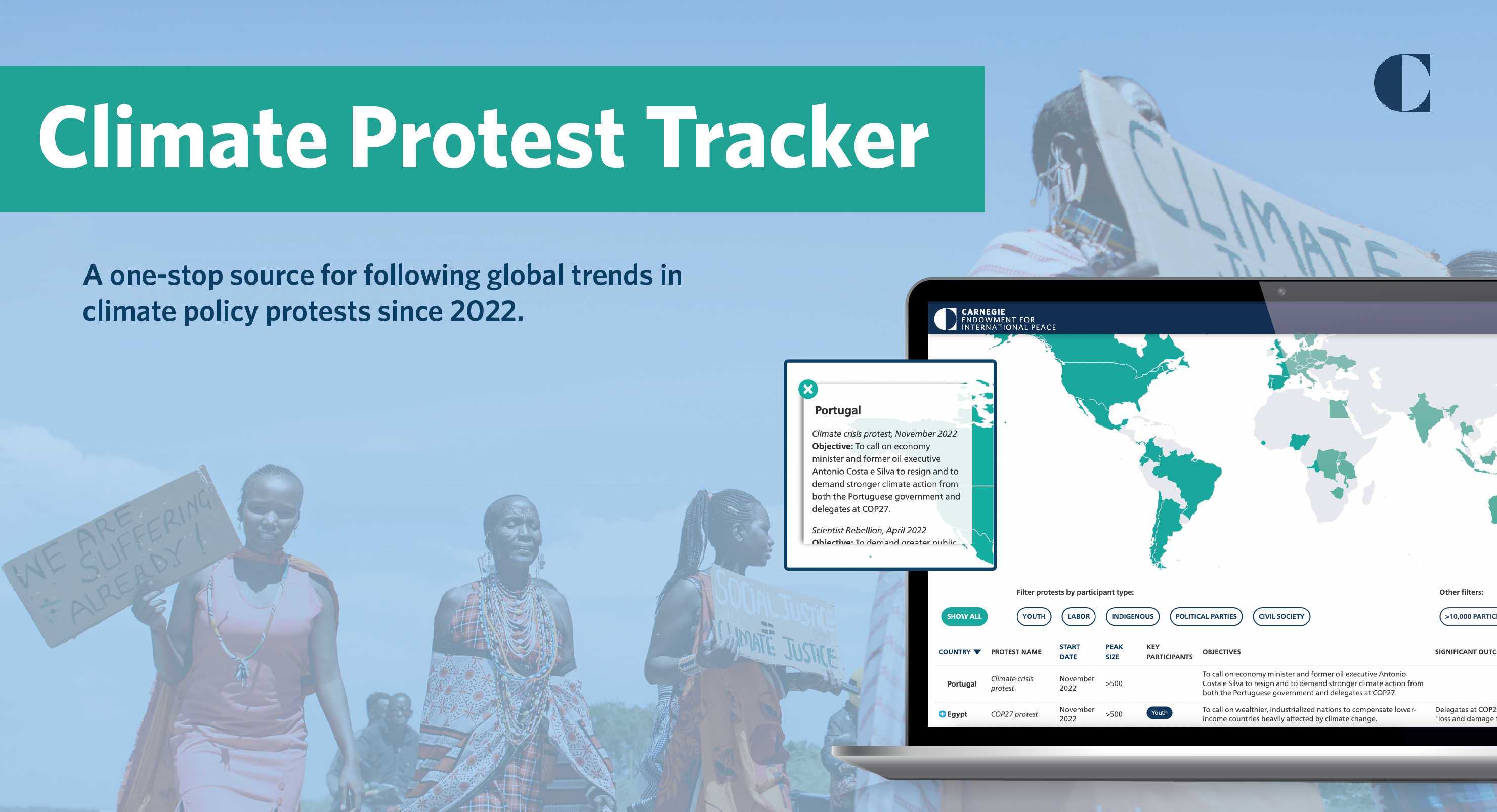Program
As the planet overheats, the politics of climate change are heating up, too. The tangible effects of the climate crisis are not only pushing civic and political actors to demand faster progress on climate adaptation and mitigation but also mobilizing those who want to slow down the energy transition or distribute its costs more fairly. This is generating new political and civic strategies, new alliances, and sharper ideological tensions—not only in the rich democracies where climate policy as such is most developed but also all around the world.
This series focuses on three trends. First is the intensification of climate activism, both in terms of the tactics of the activists themselves and the backlash from authorities and interests who oppose climate action. Second is the rise of new coalitions, such as between health or women’s rights activists and climate activists. Third is new frontiers for climate activism, such as next-generation geothermal energy or solar geoengineering. The series is a collaboration between Carnegie programs and scholars based around the world. We hope you enjoy reading.
Digital Feature
Climate Protest Tracker
A one-stop source for following global trends in climate policy protests since 2022.
